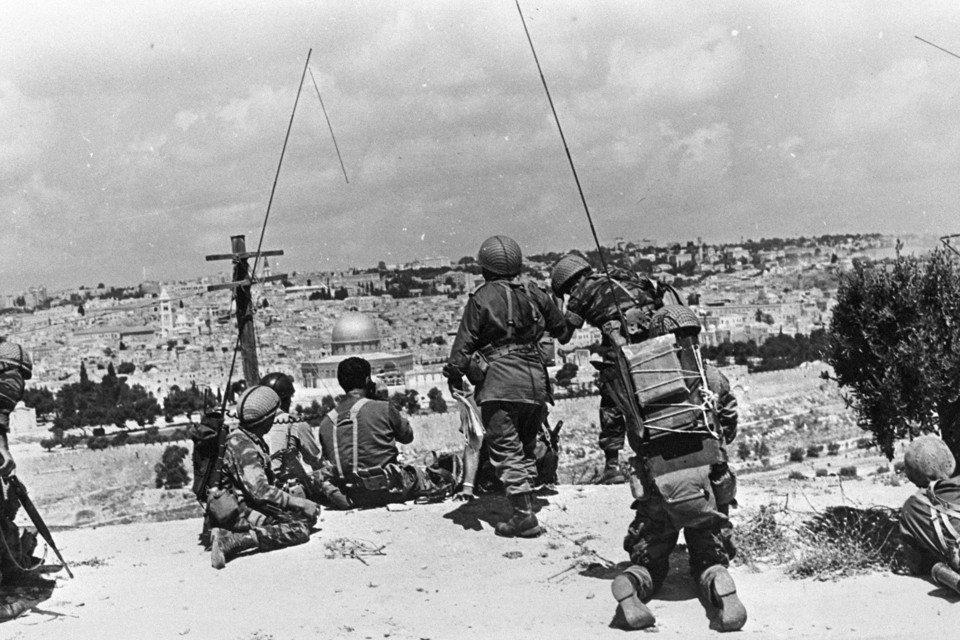Among Other Problems, Israel Is A Religious Freedom Issue

When you hear the term “one state solution”, what image comes to your mind?
Most people have yet to spend time seriously envisioning Palestine’s inevitable move from partition (in 1948) to reunification, but that hasn’t stopped some from fear-mongering about an Islamic state governed by sharia law taking hold of Palestine. [See question on Quora How can Palestinians be sure that a one-state solution would not end up with a sharia-based entity?]
The fact is, religion today is an obstacle to peace in the Arab world, but that religion is Judaism as practiced in Israel, not Islam as practiced on the Gaza Strip.
Israel’s discrimination against Palestinian Arabs, both Muslim and Christian, is a clear “religious freedom issue”, as a reporton the state of religious freedom in Israel and the occupied Palestinian territory concludes:
While religion is not the defining feature of Palestinian identity, Israeli state discrimination against Palestinians, including Palestinian citizens of Israel, is based on their non-Jewish identity and is therefore a clear religious freedom issue. To suggest that such discrimination is based on citizenship rather than religion or national origin is tautological because, if Palestinians were Jews, they would be entitled to Israeli citizenship as a matter of right under the Law of Return (discussed in chapter 2, infra).
People who advocate for the one-state solution include the words “democratic” and “secular” in the concept. They are clear on what such a state would look like and often make analogies with political transformations in South Africa and Northern Ireland.
Those who resist this preeminently reasonable solution to the violent partition of historic Palestine do so because they are interested in maintaining Israel’s present settler-colonial regime in Palestine, not because they fear or believe that the emergence of a Muslim theocracy is a potential threat in such a scenario.
Opponents often raise the specter of "a war, a bloody war with no end" (Simon Perez) or “a perpetual state of conflict if somebody tries to achieve that” (former US Secretary of State John Kerry). [See Yes, John Kerry, there can be a single, democratic state in Palestine]
Ethical decolonization of Palestine is likely to be a lengthy and difficult transition, but it is neither impossible nor necessarily bloody – certainly not on the religious score.
Those who have come of age in 1967 and later (i.e., since the military occupation by Israel of the West Bank, Gaza Strip and the Golan Heights) might well believe that religion (Judaism) has always been central to the Zionist Movement, but the fact is that its founders were atheist Jewish nationalists.
Ali Abunimah discusses “the question of the likelihood and possibility of a single state outcome” in this video. In response to a question after his presentation, he explains the proper context of religion in the present struggle (“this is not a theological conflict; it’s not Jews and Muslims fighting about the correct way to worship God”), seeing it as a recent modern phenomenon that is related to politics:
… after 1967 … we saw the emergence of a kind of Zionist Jewish nationalism in the form we know it today and the reason for that was in order to create a biblical claim for Israel to keep the West Bank and East Jerusalem and other territories. After 1967 we started to see the idea of the West Bank as “Judea and Samaria”, as the cradle of the Jewish people, that Israel had a right to keep based on those biblical claims. And then of course while these Jewish nationalist claims are made, they typically take the form of “our religious claim to this land are the most authentic and the oldest”, so people respond to that and they say. “well wait a minute, our religion is important too,” and so you begin to see Muslims also emphasizing religious claims to Jerusalem and to the land [in religious terms] that were absent in the Palestinian nationalist discourse…. there are traditions in Palestine of all the religions in that area coexisting and that is something that is perfectly plausible in the future as well.
It is Jewish law that is currently problematic in Israel, as this Haaretz article describes:
In no other country are there streets without buses and tracks without trains on the Sabbath. No other airline but El Al sits idle one day a week. Cold platters on the Sabbath in hospitals and hotels are also something not seen elsewhere. Roads on pillars because of ancient burial sites - a kind of pagan ritual to those on the outside looking in - and the separation in certain buses of men and women are also unknown in democratic countries. Religion has never been separate from the state here; hand in hand they oversee our way of life.
One secular democratic state would allow followers of all religions in historic Palestine to co-exist peacefully again.
Photo: Israeli commander Motta Gur and his brigade observe Haram al-Sharif Compound during the 1967 War
https://www.theatlantic.com/international/archive/2017/06/israel-paratroopers-temple-mount-1967/529365/
Lovely idea @rnajjar ♫